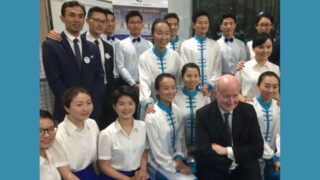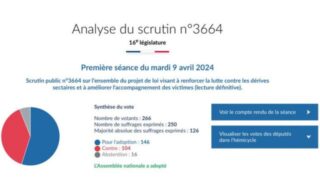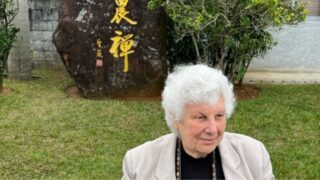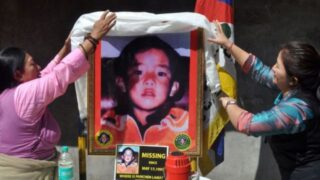The former head of the anti-xie-jiao Office 610 who became Minister of Justice is investigated, and a top anti-cult police officer ends up in jail.
by Gao Zihao


In August, it was Peng Bo. Peng had been the deputy director of the Office of the Leading Group for Prevention and Handling of Xie Jiao Issues, i.e., one of the top bureaucrats involved in the repression of religious movements banned and included in the list of the xie jiao, a word the CCP itself translates into English as “cults” or “evil cults,” but whose meaning is “heterodox teachings.” Peng was accused of embezzling funds and engaging himself in “superstitious activities,” fired, expelled from the CCP, and arrested. Uncharacteristically, a press release approved by the Central Committee and summarizing the accusations against Peng was published.
Now, the crackdown on former anti-xie-jiao bureaucrats has reached an even higher target. Fu Zenghua was the very director of the central anti-xie-jiao office popularly known as Office 610, i.e., the top anti-cult official in the country. He played a crucial role in the repression of Falun Gong and The Church of Almighty God (CAG), and was in charge in 2014 when the CCP fabricated the false accusation that CAG members had killed a woman in a McDonald’s diner in Zhaoyuan, Shandong (the murder had in fact been perpetrated by another group).
Fu was rewarded for his good work against the xie jiao by being promoted to executive vice Minister of Justice, then in 2018 Minister of Justice and member of the Central Committee of the CCP. In these capacities, Fu continued to promote campaigns against “cults” until last year, when he was transferred to the less important position of member of the National Committee of the Chinese People’s Political Consultative Conference after his deputy and close associate, Sun Lijun, had been accused of corruption and fired.
On October 2, it was announced that, after the expulsion from the CCP of Sun Lijun on September 30, Fu was put under investigation for “serious violations.” It would not be surprising if, like Peng Bo, he will end up in jail.
At the local level, anti-xie-jiao officers are being accused of being corrupted as well. In August, Huang Yongsheng, the former head of the anti-xie-jiao unit of the Public Security Bureau of Guigang city, a prefecture-level city in Guangxi Zhuang Autonomous Region, was sentenced to three years in jail after having been expelled from the CCP. Although the crimes he was accused of were not related to his anti-xie-jiao activities, it is clear that anti-corruption campaigns are now targeting those involved in the repression of banned religions.
Accusations that they pocket money confiscated from “cultists” are probably true. However, the investigations and arrests also express the CCP’s dissatisfaction for the fact that the anti-xie-jiao campaigns failed to eradicate the main “cults,” which in fact during the COVID-19 crisis gained new members.









